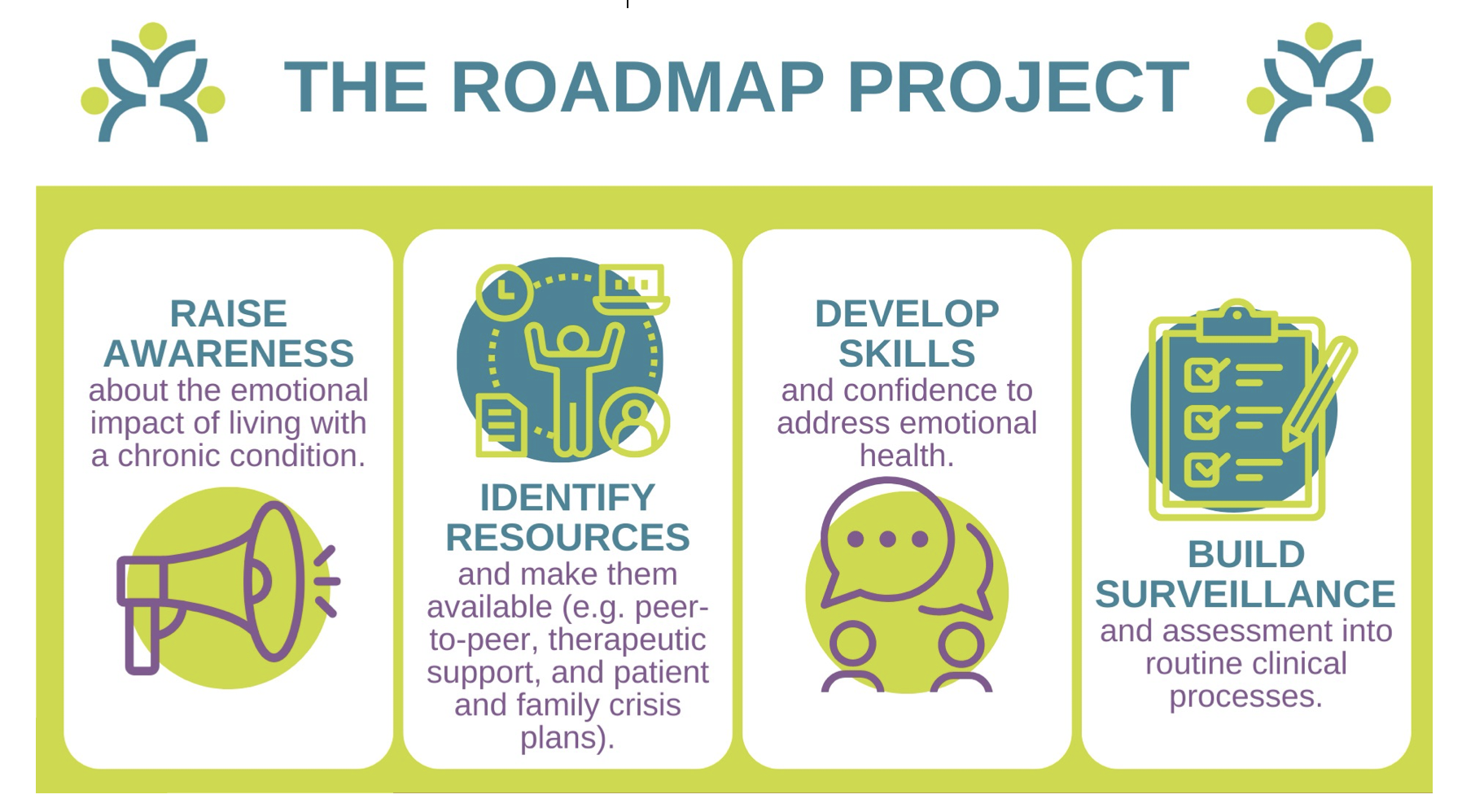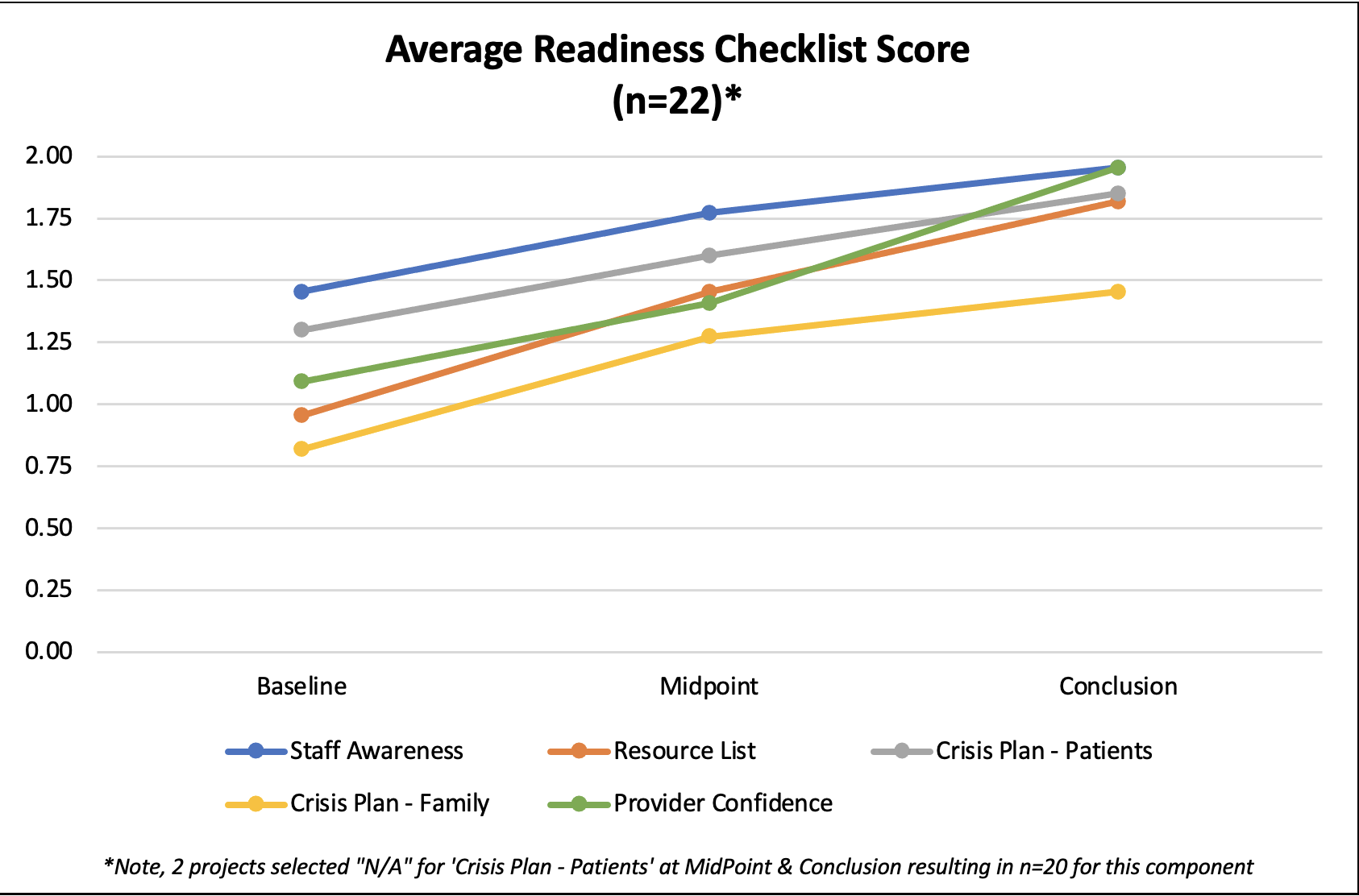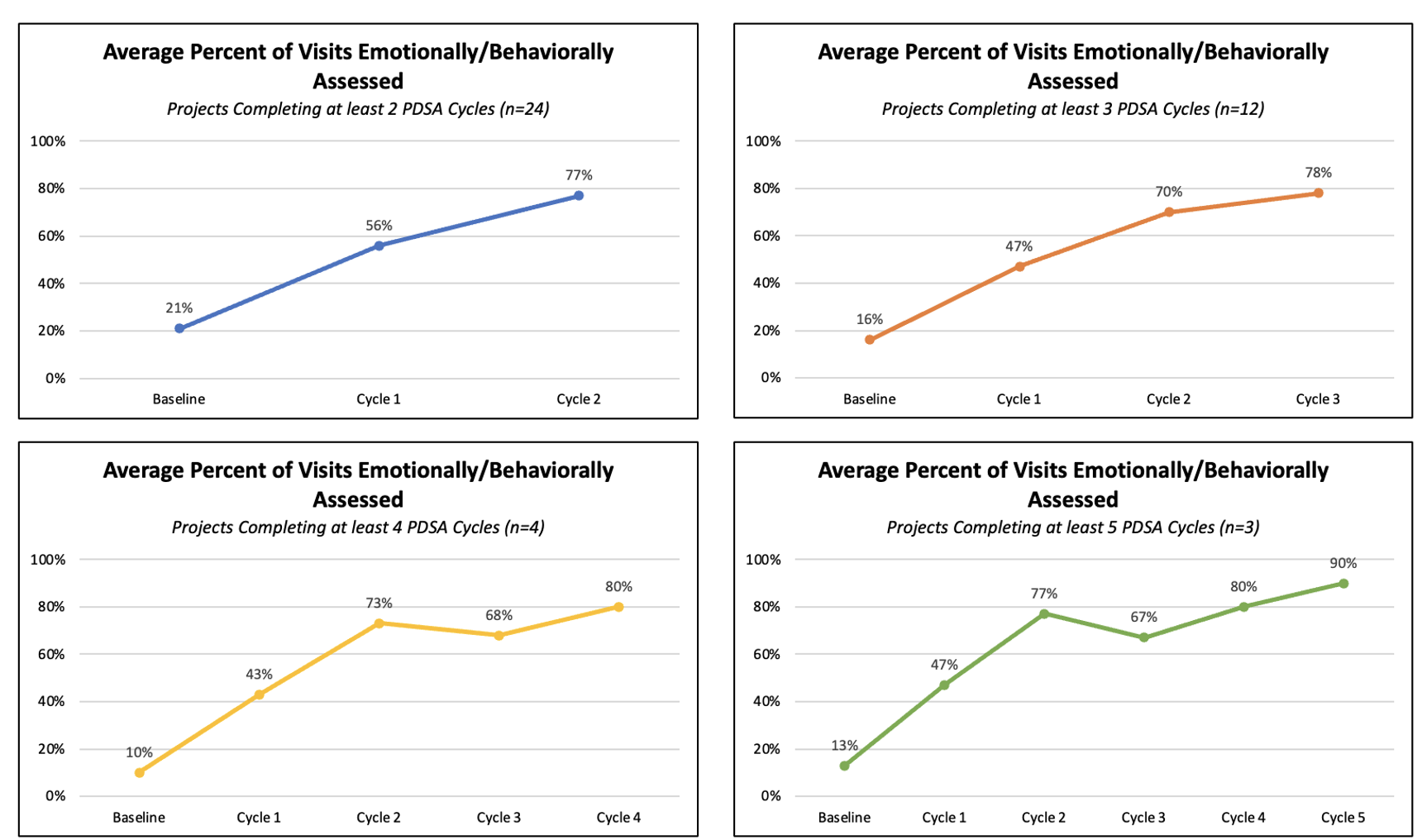Quality Improvement/Patient Safety
Session: Quality Improvement/Patient Safety 3
15 - Using quality improvement to successfully integrate the assessment of emotional health of children with chronic conditions & their families into practice: the ABP Roadmap Project MOC Part 4 Activity
Monday, May 6, 2024
9:30 AM - 11:30 AM ET
Poster Number: 15
Publication Number: 15.3034
Publication Number: 15.3034

Laurel K. Leslie, MD, MPH (she/her/hers)
Vice President, Research
American Board of Pediatrics
Chapel Hill, North Carolina, United States
Presenting Author(s)
Background: Navigating a chronic condition is challenging for children and families, affecting their emotional health. The American Board of Pediatrics (ABP) Roadmap Project supports clinicians in addressing the emotional health of this population. Roadmap used a deliberate, stakeholder engaged development process and tested its framework and tools in diverse inpatient and outpatient settings with 11 clinical teams from 9 children’s hospitals.
Objective: This study aimed to assess the impact of the ABP online Roadmap Project Maintenance of Certification (MOC) Part 4 activity to support pediatricians in addressing the emotional health of children with chronic conditions and their families.
Design/Methods: This online MOC Part 4 activity uses the Model for Improvement. Physicians complete a Readiness Checklist to identify practice gaps, develop an improvement aim and measure, and select Roadmap strategies and resources to test using at least two Plan-Do-Study-Act cycles. Physicians track and submit data and qualitative reflections on the project to an ABP platform.
Results: The initial physician cohort (n=26) completing the activity were 24% male, with 43% pediatric subspecialists and 57% primary care physicians. Analysis documented significant improvements on all Readiness Checklist components: developing a family resource list increased by 90%, confidence to address emotional health by 79%, having a family crisis plan by 78%, and staff awareness by 34%. For those completing two PDSA cycles, the percentage of visits in which emotional health was addressed/assessed increased from 21% to 77%. Among those completing at least five PDSA cycles, the percentage of visits in which emotional health was addressed/assessed increased from 13% to 90%. Qualitative physician feedback was overwhelmingly positive, e.g., “This project has had a profound impact on our care of children.”
Conclusion(s): Physicians completing the Roadmap MOC Part 4 activity improved awareness of patient and family emotional needs, confidence in addressing emotional health, identification of resources for families, and successful integration of emotional health assessments into practice. Feedback suggested this activity positively affected care. The measures tracked, and the reflections shared, indicate that this improvement activity had a powerful impact on physicians’ perspectives, their confidence in addressing emotional health, and documented clinical practice change. The ABP Roadmap MOC Part 4 activity can be a useful and feasible means of addressing and improving the emotional health of children with chronic conditions and their families.



